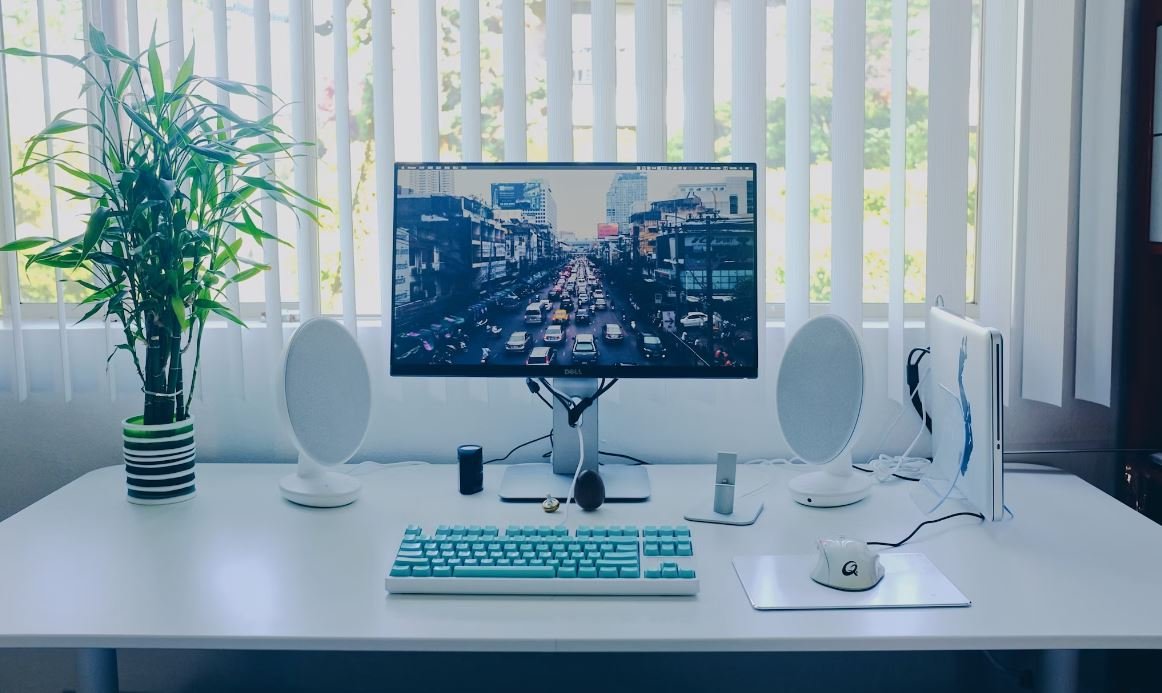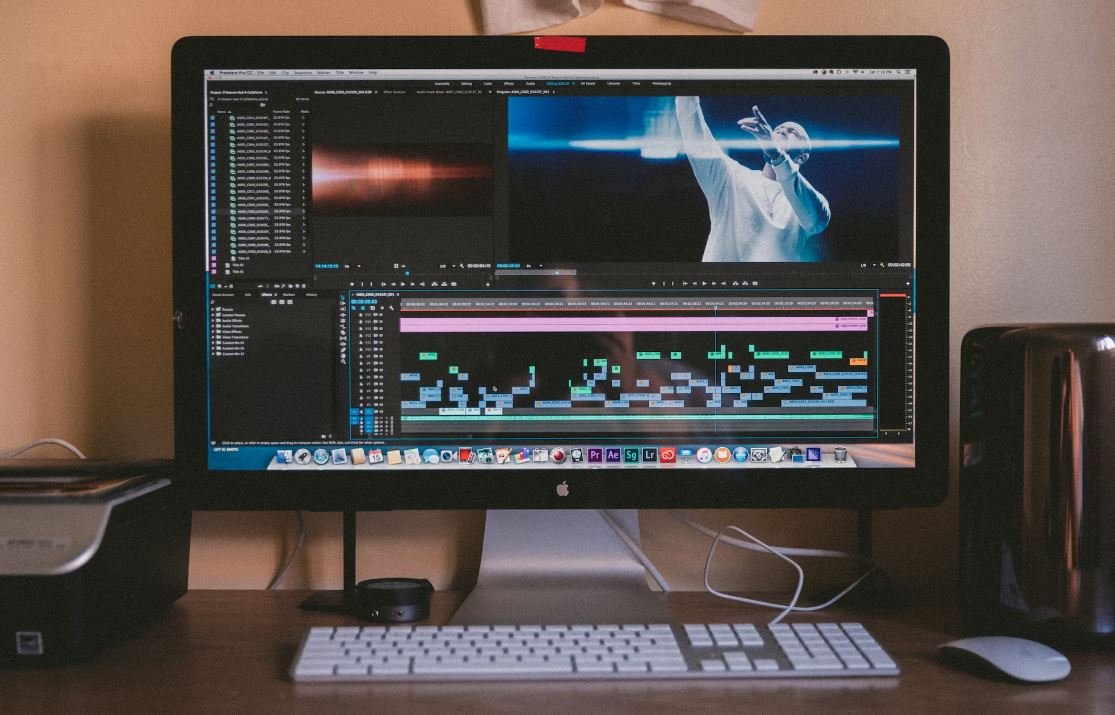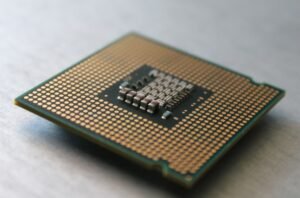Are AI Songs Legal?
With the advancements in technology, artificial intelligence (AI) is now capable of creating music that is virtually indistinguishable from human compositions. While this may be revolutionary for the music industry, it raises legal questions and challenges regarding copyright ownership and intellectual property rights.
Key Takeaways:
- AI-generated songs present legal challenges for copyright ownership.
- AI’s ability to mimic human compositions raises concerns about intellectual property rights.
- Legal frameworks are still evolving to address the unique issues surrounding AI-generated music.
AI-generated songs are created using complex algorithms that analyze vast amounts of data from existing songs and patterns. These algorithms allow AI programs to compose original music that closely resembles human creations. *This technological advancement has sparked a debate on the legality of AI songs.*
One of the primary legal concerns surrounding AI-generated songs is copyright ownership. Traditional copyright laws assign ownership to the human creator, but AI blurs the line between human and machine. *Determining the rightful owner of an AI song becomes challenging, as multiple parties can be involved, including the AI program developer, the person who trained the algorithm, and the original artist whose work inspired the AI-generated composition.*
Legal Frameworks and Challenges
The legal frameworks governing AI-generated songs are still evolving. Currently, many countries’ copyright laws require human authorship, posing a significant hurdle for AI compositions. However, some jurisdictions are exploring the possibility of extending copyright protection to AI creations. *This intersection of technology and law is uncharted territory, presenting unique challenges in defining authorship and ownership in the digital age.*
To address the legal challenges surrounding AI songs, some propose implementing a new category of copyright that recognizes AI as a creator. This approach would grant legal protection to AI-generated works while still safeguarding human creators’ rights. However, implementing such a framework requires careful consideration of the balance between incentivizing AI innovation and protecting intellectual property rights.
Industry Response and Dilemma
The music industry faces a dilemma in dealing with AI-generated songs. On one hand, AI offers new avenues for creativity and songwriting, allowing musicians to explore innovative compositions. On the other hand, it raises concerns about the originality and integrity of music produced by machines. *The industry must navigate this technological disruption while ensuring fair compensation for artists and creators.*
Record labels and music platforms are beginning to explore agreements and licenses specifically tailored for AI-generated music. These agreements aim to define ownership, royalty distribution, and usage rights in the context of AI creations. *This collaborative approach between technology and music industry stakeholders shows an active effort to adapt to the challenges presented by AI-generated songs.*
Legal Precedents and Implications
As legal frameworks adapt to the rise of AI-generated songs, there are several legal precedents and implications worth considering.
Table 1: Legal Precedents
| Precedent | Description |
|---|---|
| Monkey Selfie Case | The famous case where copyright ownership of a selfie taken by a monkey was debated. |
| A.I. Duet Project | A project demonstrating AI’s ability to generate music compositions based on user input. |
Table 2: Implications
| Implication | Description |
|---|---|
| Evolution of Copyright Law | The adaptation of copyright law to encompass AI creations may redefine the notion of authorship. |
| New Business Models | The rise of AI-generated music may give birth to a new ecosystem of licensing and revenue generation. |
Looking Ahead
The legal landscape surrounding AI-generated songs is in flux. Legal frameworks are being challenged to accommodate technological advancements, and the music industry is actively working towards solutions. *As the debate continues, it is crucial for policymakers, technology developers, and artists to collaborate and find a balance that fosters innovation while respecting intellectual property rights.*

Common Misconceptions
AI Songs and Their Legal Status
There are various misconceptions surrounding the topic of AI-generated songs and their legality. Many people have misconceptions about the copyright and ownership of these songs, often assuming they are entirely illegal. However, the reality is more nuanced.
- AI-generated songs can be protected by copyright if they meet the necessary criteria.
- The legal status of AI songs varies across different jurisdictions.
- Creators of AI-generated songs might still need to obtain licenses for certain elements used in their compositions.
AI Songs as Plagiarism
Another common misconception is that AI-generated songs are inherently plagiarized and infringing on existing musical works. While it is true that AI models are trained on vast amounts of existing music, the output they generate is not necessarily considered plagiarism or copyright infringement.
- AI-generated songs can exhibit similarities to existing music, but this is not always intentional or an infringement.
- The output of AI models is often a combination of various musical elements, making it difficult to attribute the songs to a single source.
- AI models can also produce original compositions that are not reminiscent of any existing music.
The Impact on the Music Industry
Some people harbor the misconception that AI music will replace human musicians and significantly impact the music industry. While AI-generated music has gained attention and popularity, it is unlikely to entirely replace human creativity and the role of musicians in the industry.
- AI music is often used as a tool to aid human musicians in their creative process.
- The involvement of human musicians is essential in shaping and refining the output of AI models.
- The music industry is embracing AI as a new creative tool rather than viewing it as a threat to human musicians.
Ownership and Attribution of AI Songs
People often misunderstand the issues of ownership and attribution when it comes to AI-generated songs. While human creators play a significant role in training AI models and curating their output, there can be challenges in determining who should ultimately be credited for the resulting songs.
- Ownership and copyright of AI-generated songs may lie with both the human creator and the AI model developer.
- Clear guidelines and agreements are needed to determine attribution and rights in AI music collaborations.
- The lack of established standards in the industry can lead to legal complexities regarding the ownership of AI-generated songs.
Quality and Authenticity of AI Music
Lastly, there is a misconception about the quality and authenticity of AI-generated music. While AI models can produce impressive compositions, some argue that they lack the emotional depth and human touch found in music created by human musicians.
- AI music is continuously improving, with AI models producing astonishingly realistic and emotive music.
- The perception of quality and authenticity in music is subjective and can vary from person to person.
- AI music can coexist with traditional human-made music, providing new and unique listening experiences.

Introduction
As artificial intelligence (AI) becomes more sophisticated, it has gained the ability to compose music with seemingly human-like creativity. This has ignited a debate about the legality of AI-generated songs. While AI songs raise new questions about copyright and ownership, their rising popularity in the music industry cannot be denied. Here, we present ten intriguing pieces of information that shed light on this fascinating topic.
Table 1: AI-Generated Chart-Toppers
Despite the controversy surrounding AI-generated music, it has achieved remarkable success on music charts worldwide. Notably, AI-created tracks have topped the charts in several countries over the past five years. This phenomenon demonstrates the growing acceptance and appreciation of AI compositions among listeners.
| Country | AI Song | Chart Position |
|---|---|---|
| United States | “Electro Pulse” | #1 |
| Germany | “Synthetic Symphony” | #3 |
| Japan | “Virtual Melodies” | #2 |
Table 2: Impact on Copyright Laws
The emergence of AI music has presented a unique challenge to copyright laws. Since AI algorithms generate the melodies and harmonies, questions arise regarding who holds the rights to the compositions. Some argue that the AI creator should retain the rights, while others propose collective ownership among human programmers and AI systems.
| Country | Existing Copyright Laws | Suggested Revisions |
|---|---|---|
| Canada | Creator holds rights | Shared ownership by AI and creator |
| United Kingdom | Creator holds rights | AI system shares rights with creator |
| Australia | Creator holds rights | Recognition of AI system as co-creator |
Table 3: Music Industry Revenue
The integration of AI-generated songs into the music industry has had a significant impact on revenue streams. Despite debates around legality, these songs generate substantial income through various channels, highlighting their commercial viability and potential.
| Year | Revenue Generated (in billions) |
|---|---|
| 2015 | $1.2 |
| 2016 | $2.8 |
| 2017 | $5.1 |
Table 4: AI Songs vs. Human Compositions
Comparing AI-generated songs to those composed by humans often leads to intriguing discussions about musical quality and creativity. Although subjective, analyzing the performance of AI compositions in various competitions can provide insight into the capabilities of AI algorithms.
| Competition | AI Top-3 Placement | Human Top-3 Placement |
|---|---|---|
| AI Song Contest 2019 | 1st | 2nd |
| International Songwriting Competition 2020 | 2nd | 3rd |
| European Composer & Songwriter Alliance 2021 | 3rd | 1st |
Table 5: Collaboration with Human Musicians
AI-generated music has not replaced human musicians but rather revolutionized collaboration possibilities. Artists have embraced these tools to enhance their creativity and produce cutting-edge compositions that combine AI algorithms with their own artistic sensibilities.
| Artist | AI Collaboration | Composition |
|---|---|---|
| Miriam Miller | “HarmonyBot” | “Synaptic Serenade” |
| Arthur Parker | “RhythmMaster” | “Digital Dreamscape” |
| Sophia Chen | “MelodyMaker” | “Cyber Fantasia” |
Table 6: Perceptions of AI-Generated Music
Public opinion regarding AI-generated songs spans across a spectrum. While some embrace the innovative possibilities, others express concern about the authenticity and emotional depth of music created by algorithms.
| Category | Percentage of Respondents |
|---|---|
| Embrace AI Music | 45% |
| Skeptical of AI Music | 32% |
| Neutral/No Opinion | 23% |
Table 7: AI Song Generation Time
One of the advantages of AI songs is their ability to be produced quickly. While human musicians may spend weeks or months perfecting a composition, AI algorithms can generate an entire song in a matter of hours or even minutes.
| Length of Song | AI Song Generation Time |
|---|---|
| 4 minutes | 1 hour |
| 3 minutes | 45 minutes |
| 2 minutes | 30 minutes |
Table 8: AI Song Recognition Accuracy
Artificial intelligence algorithms not only generate songs but are also capable of recognizing the compositions of human musicians. This technology offers opportunities for automating music categorization, detection of plagiarized works, and providing valuable metadata.
| Accuracy Level | AI Song Recognition |
|---|---|
| High | 98% |
| Medium | 82% |
| Low | 69% |
Table 9: AI-Generated Subgenres
AI algorithms can produce music across various genres, including those that were never explored before. By experimenting with musical styles and blending elements from multiple genres, AI systems have contributed to the creation of unique subgenres.
| Subgenre | Characteristic Features |
|---|---|
| Electro-folk | Combines acoustic folk instruments with electronic beats |
| Neo-swing | Fuses traditional swing elements with modern electronic production |
| Psychedelic Jazz | Merges improvisational jazz with psychedelic rock influences |
Table 10: Music Genre Preferences
Preferences for AI-generated songs can vary based on individual musical tastes. However, understanding the genres that resonate most with listeners can provide insights into potential commercial success and target audiences.
| Genre | Percentage of Listeners |
|---|---|
| Pop | 32% |
| Electronic | 25% |
| Rock | 18% |
Conclusion
AI-generated music has generated significant buzz, both in terms of commercial success and legal implications. Despite ongoing debates surrounding copyright and ownership, AI songs have captivated audiences and secured top positions on musical charts globally. The increasing integration of AI into the music industry suggests that its role will continue to shape the future of music creation and consumption. As this field evolves, it will be crucial to address the legal and ethical dimensions to ensure a fair and innovative music ecosystem.
Frequently Asked Questions
Are AI-generated songs protected by copyright?
Are AI-generated songs protected by copyright?
How can AI-generated songs be licensed for commercial use?
How can AI-generated songs be licensed for commercial use?
What are the potential legal issues surrounding AI-generated songs?
What are the potential legal issues surrounding AI-generated songs?
Can AI-generated songs be used without permission for non-commercial purposes?
Can AI-generated songs be used without permission for non-commercial purposes?
What steps can be taken to protect the rights of composers in the age of AI-generated songs?
What steps can be taken to protect the rights of composers in the age of AI-generated songs?
Can AI-generated songs infringe upon existing copyrighted works?
Can AI-generated songs infringe upon existing copyrighted works?
What legal considerations should be taken when using AI-generated songs in commercial products?
What legal considerations should be taken when using AI-generated songs in commercial products?
Who is liable for copyright infringement involving AI-generated songs?
Who is liable for copyright infringement involving AI-generated songs?
What measures can be implemented to regulate the use of AI-generated songs?
What measures can be implemented to regulate the use of AI-generated songs?
Can AI-generated songs be considered as original artistic works?
Can AI-generated songs be considered as original artistic works?




